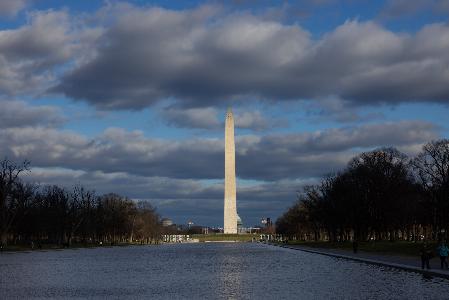On Dec. 21, 2015, a new Federal Aviation Administration database came online requiring all pilots of model aircraft — drones, fixed-wing planes and other flying machines under 55 pounds generally referred to as unmanned aerial vehicles (UAVs) — to register their craft with the federal government. This included hobbyists, or people who flew just for fun.
Last Friday, a federal appellate court said that online registry was unlawful — at least for recreational fliers.
For D.C.-area lawyer John Taylor, it was a sweet resolution to a year-and-a-half-long legal skirmish. But even in victory, Taylor remains uncertain, as it’s possible the FAA moves to temporarily halt a ruling favorable to hobbyists.
To recap: Taylor is the insurance lawyer who sued the FAA in 2015, as Technical.ly DC reported in February. A committed hobbyist who builds and flies his own drones, Taylor thought the registration requirement created by the FAA contradicted a previous law, passed by Congress in 2012, which said the federal agency could not “promulgate any rule or regulation regarding a model aircraft … if the aircraft is flown strictly for hobby or recreational use.” The FAA, citing safety, thought it could require even recreational UAV users to sign up on an online registry. The U.S. Court of Appeals for the D.C. Circuit thought not, and, on May 19, struck down the registration requirement for recreational model aircraft users.
“Taylor does not think that the FAA had the statutory authority to issue the Registration Rule and require him to register. Taylor is right,” read the court’s opinion.
“It’s great to win,” said a triumphant Taylor, who argued his own case in court in March. “It was a pretty simple case: The statute says don’t do this; the [FAA] did it.”

John Taylor and one of his custom-built drones. (Photo by Sukie Kim)
Industry groups and model aircraft associations were quick to air their thoughts on the ruling — which, for the record, does not apply to commercial drones. If you’re someone who makes money with a model aircraft, you’re still required to register.
The Academy of Model Aeronautics said it was “encouraged” by the ruling. “It is our belief that a community-based program works better than a federally mandated program to manage the recreational community,” AMA President Rich Hanson said in a statement.
On the other hand, the Association for Unmanned Vehicle Systems International voiced its disapproval. In a statement, AUVSI President Brian Wynne said the organization was “disappointed” with the court’s decision and that a registration system for hobbyists “is important to promote accountability and responsibility by users of the national airspace.”
It’s this take on the recent ruling that leaves Taylor feeling leery.
The argument about how an online registry, where recreational fliers had to provide personal information about themselves and their model aircraft, would promote a culture of accountability to curb reckless flying strikes Taylor and others as specious.
“I think most of us realized this [registry] wasn’t going to do much for accountability because a lot of people weren’t going to register,” said Taylor, who never registered himself.
But it’s exactly the sort of argument that the FAA and industry groups could use to pressure Congress into changing the 2012 law so that recreational model aircraft have to register. After all, the ruling itself was quite narrow, and left open for debate key questions that still vex the hobby drone community. Are model aircraft truly aircraft, and therefore open to statutory authority? Does the FAA even have the authority to regulate aircraft that don’t endanger navigable airspace?
“They didn’t get into what is an aircraft or who owns the sky. It doesn’t provide a lot of guidance for anybody,” Taylor said. “I’m certainly pleased by [the ruling]. But I wish they had gone farther and addressed some of the broader issues.”
Perhaps that’s a legal battle for another day.
Join the conversation!
Find news, events, jobs and people who share your interests on Technical.ly's open community Slack

DC daily roundup: $10M to streamline govt. contracting; life sciences might dethrone software; Acadia's new $50M

DC daily roundup: the DMV's VC cooldown, SmartSigns for safer driving; Rep. Schiff's AI copyright bill

Will the life sciences dethrone software as the king of technology?

